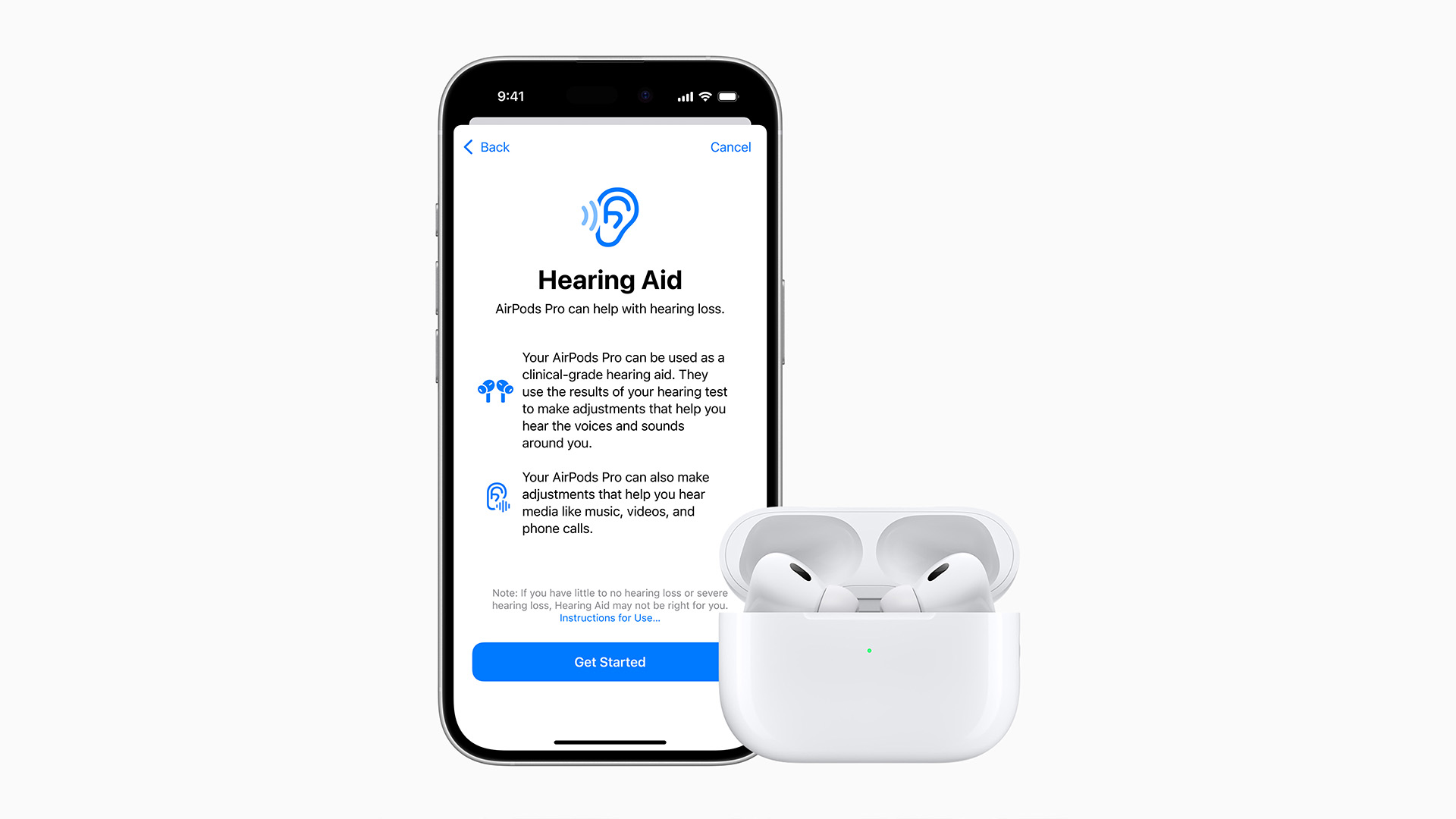Is the Apple AirPods Pro 2’s Hearing Aid Mode a game-changer for accessibility? We asked an expert
Brent Lucas on how Apple’s AirPods Pro 2 could change the hearing aid industry


The AirPods Pro 2 are set to take a huge leap in accessibility with the introduction of a hearing aid mode, positioning them as a practical alternative to traditional hearing aids. With a growing focus on health features across its products, Apple continues to explore how consumer electronics can fill gaps traditionally dominated by medical devices.
But what exactly is Apple’s hearing aid mode, and how might it change the landscape of hearing assistance? We spoke with Brent Lucas, CEO of Envoy Medical, to get expert insights on this emerging trend.

Brent Lucas is the CEO of Envoy Medical, a company specialising in fully implanted hearing implants. With a background in healthcare leadership, he focuses on advancing hearing technologies for people with significant hearing loss, promoting innovation and accessibility in the field.
What does the AirPods 2's Hearing Aid mode do?
The Apple AirPods Pro 2 hearing aid mode is a natural evolution of existing accessibility features like Conversation Boost, which helps amplify voices in noisy environments. Hearing aid mode will likely build on these technologies, offering users a customisable way to manage mild to moderate hearing loss.
The fact that these functions are available on a widely-used consumer product like AirPods lowers the accessibility barrier for those who may be hesitant to try traditional hearing aids due to cost, stigma, or social acceptance.
Lucas emphasises the potential accessibility boost: "I see a lot more people with iPhones and AirPods than I do with traditional hearing aids," he notes, suggesting that Apple’s massive reach could encourage more people to address their hearing needs.
Disruption in the hearing aid industry (in a good way)
Hearing aids have long been regulated medical devices, but Apple’s involvement signals a shift that could disrupt this sector. "The hearing aid industry has not evolved its business model effectively over the years," says Lucas. With over-the-counter hearing aids and AI-driven diagnostics on the horizon, companies like Apple are likely to challenge traditional industry players.
However, Lucas doesn’t see this disruption as entirely negative. As CEO of a company focused on hearing implants for more severe hearing loss, he views Apple’s entry into the market as complementary: "As more people start their hearing loss journey with devices like AirPods Pro 2, many will eventually realize they need something more." This could expand the overall hearing health market and, indirectly, benefit companies like Envoy Medical that offer advanced solutions for more significant hearing loss.
Get all the latest news, reviews, deals and buying guides on gorgeous tech, home and active products from the T3 experts

Tackling stigma and social acceptance
One of the most notable advantages of using AirPods Pro 2 as hearing aids is discretion. Lucas highlights the societal stigma surrounding traditional hearing aids, explaining that "people often associate traditional hearing aids with a disability." AirPods, however, are seen as a trendy tech accessory, not a medical device, allowing users to address their hearing loss without announcing it to the world.
This feature could dramatically reduce the reluctance many people feel about seeking treatment for hearing loss. As Lucas points out, "Not everyone wants to wear eyeglasses if they have vision loss. Some people want contacts or surgery." Similarly, the more options available to treat hearing loss, the better for society at large.
Reducing cost barriers
A key aspect of democratising hearing health is cost. Traditional hearing aids can cost thousands of dollars, making them inaccessible to many people. In contrast, AirPods Pro 2 provide a more affordable option. "Having a device that provides relatively good performance for a few hundred dollars is certainly going to make products more accessible," Lucas states. Apple is even rolling out a clinically validated hearing test as part of this feature, further legitimising the AirPods’ role in hearing health.
A promising future for hearing technology
The integration of AI and other advanced technologies into hearing devices is set to revolutionise the industry. "Companies that remain stagnant may be left behind," warns Lucas. As tech giants like Apple, Google, and Samsung focus more on hearing health, the overall market for hearing solutions will expand, creating opportunities for specialised companies like Envoy Medical.
Apple’s hearing aid mode in the AirPods Pro 2 isn’t just about improving accessibility; it’s also about evolving how we think of hearing health. By lowering the cost, reducing stigma, and making hearing assistance more socially acceptable, Apple could drive a massive shift in how hearing loss is addressed worldwide.

Matt Kollat is a journalist and content creator who works for T3.com and its magazine counterpart as an Active Editor. His areas of expertise include wearables, drones, fitness equipment, nutrition and outdoor gear. He joined T3 in 2019. His byline appears in several publications, including Techradar and Fit&Well, and more. Matt also collaborated with other content creators (e.g. Garage Gym Reviews) and judged many awards, such as the European Specialist Sports Nutrition Alliance's ESSNawards. When he isn't working out, running or cycling, you'll find him roaming the countryside and trying out new podcasting and content creation equipment.